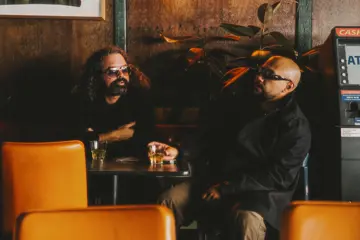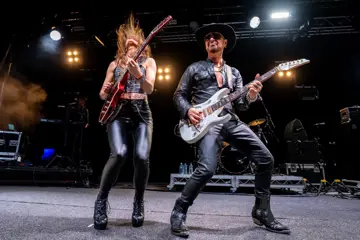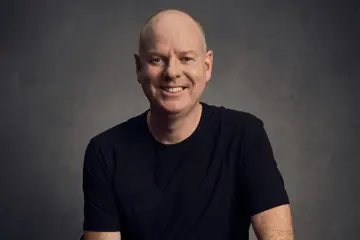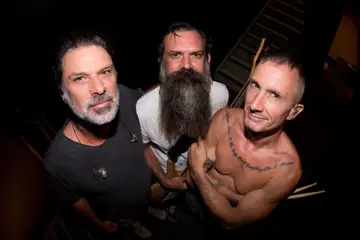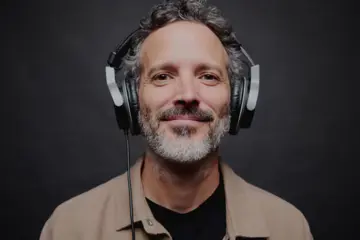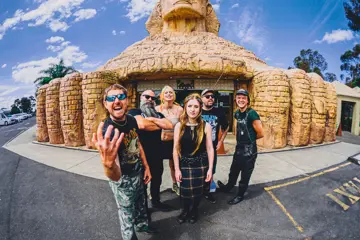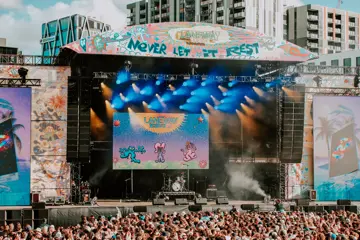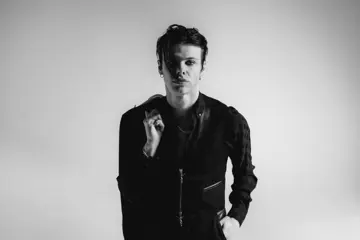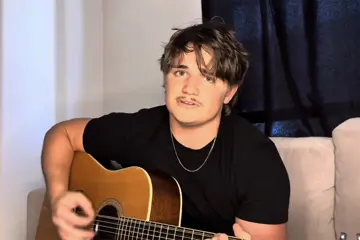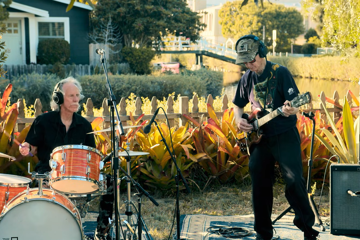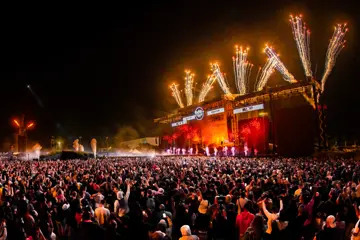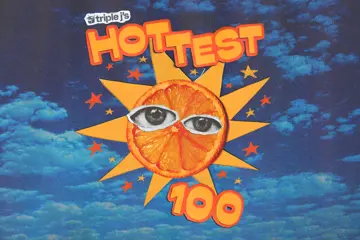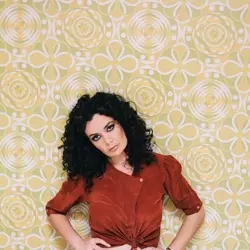 Leah Flanagan
Leah FlanaganWhen migrants arrive their stories tend to be loss, survival and new beginnings, however these same types of stories also tend to be told by those who were already here, but were moved on or moved out. A collection of movement stories form the set for Exile: Songs and Tales of Irish Australia. And a huge part of the plan has been celebrating the diversity of experiences that can be captured in the folk songs of the new and first Australians who were affected by migration.
"With the songs you can understand the heart of it and it doesn't become political, it becomes personal and relatable."
"Australia has such a crazy history and no one really learns about why or how the Irish came here, even [when] so many of us have some link to Irish history," explains musician Leah Flanagan. Her interest, like many of the performers (including Shane Howard, Paul Kelly, Declan O'Rourke and more), is to circulate songs that we've somehow left out and add depth to the dominant colonial narrative. So, dear reader, expect much more than the nursery-rhyme like convict songs from your primary school curriculum. "Gosh, I learned Moreton Bay, which is a song about killing an Aboriginal man!" Flanagan exclaims. "When we're young we don't think about the history about those things. So I've gone on to learn the songs and histories of the places where I came from and how they came to be.
"At the heart of it all is someone just sitting down to tell a story," says Flanagan. Across Australia migration meant different things for different groups, however the invitation is for audiences to come and celebrate what they already know, or to come and learn. "Shane's selected artists that have something different to each bring, so I come from the North and from a family that grew up on missions, so those old school mission songs that really did come from Irish nuns who were working there. But it was a place for people who went up there to be free people, or people who were free people and then found themselves no longer free — and those stories are what we can tell those songs," Flanagan explains. "So the show talks about different parts of Australia and different parts of Ireland and how they connect".
There is an obvious political aspect to the program, but that's something that the performers are keen to include as far as is necessary, rather than just for its own sake. "Really these are just stories of the human condition, you know? And it's not just the Irish and Aboriginal, but I'm Italian as well, those too, and my family left their home there too — people had to leave their homes for various reasons — and it is political, but with the songs you can understand the heart of it and it doesn't become political, it becomes personal and relatable," she continues.
Don't miss a beat with our FREE daily newsletter
While there will no doubt be some challenging moments, Flanagan explains that really it is a "celebration of the Irish influence". While she admits there is a "beautiful but also sad" side given that one culture's influence might come to overtake another, there's something a collection of songs can do "bridge gaps between people". That, and wherever there's cracking tunes, there's a time to move beyond sadness. "That's right, it's going to be entertaining!", Flanagan says excitedly, "and that's the fun part."

